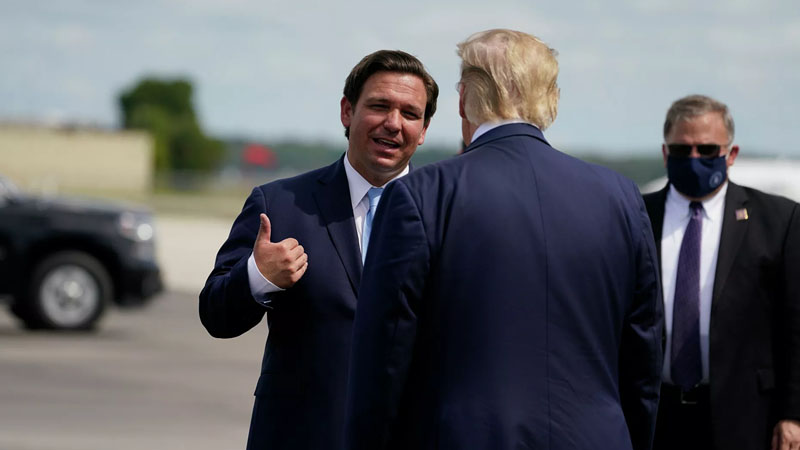Ron DeSantis, who officially started his presidential candidacy last week, positions himself as a defender of individual freedom against an overbearing government. However, as governor of Florida, DeSantis has consistently contradicted that view by blurring the barrier between state and private activity, a difference critical to civil rights protection.
During the pandemic, DeSantis was not just opposed to government-mandated vaccinations. He ruled that company owners could not demand customers to provide proof of vaccination, and he proudly signed legislation forbidding private employers from requiring vaccinations.
This law also prohibited school districts from adopting mask mandates. DeSantis, however, would not stop there: he proposed legislation “permanently prohibiting COVID-19 masking requirements at businesses.”
DeSantis stated that the bill, which he signed into law a few weeks ago, was intended to reduce the “biomedical security state.” As a result, he linked the voluntary actions of company owners with forceful government initiatives.
DeSantis’ insistence on overturning their individual decisions contradicts his description of Florida as “an oasis of freedom” with a “business-friendly environment.” When it comes to vaccinations and masks, he recently told John Stossel that Florida has “consistently sided with the individual,” which is true only if you overlook folks who oppose DeSantis’ business policies.
The same may be said for the Individual Freedom Act, the Orwellian moniker for a Florida bill also known as the Stop WOKE Act. It tried, among other things, to compel private firms’ training techniques, which a federal judge halted last year because it infringed free expression.
A similar fate befell a Florida legislation that obliged social media platforms to publish political campaign messaging. Although DeSantis presented the mandate as a response to “Big Tech censors” who discriminate against conservatives, three Republican-appointed judges on the United States Court of Appeals for the Eleventh Circuit unanimously concluded that it was directly in conflict with the First Amendment’s protection of editorial discretion.
“Platforms are private enterprises, not governmental (or even quasi-governmental) entities,” the appeals court noted. “While the Constitution protects citizens from governmental efforts to restrict their access to social media,” it said, “no one has a vested right to force a platform to allow her to contribute to or consume social-media content.”
DeSantis’ willingness to punish private companies for exercising their First Amendment rights can be seen by his spat with Disney, whose former CEO irritated him by opposing a Florida statute that limits discussion of sexual orientation and gender identity in public schools. DeSantis replied by passing legislation to seize control of the Reedy Creek Improvement District, which had overseen the region around Disney World since 1967.
DeSantis complained that “a corporation based in Burbank, California,” was using its “economic might” to “attack the parents of my state.”
DeSantis’ combination of private and public activity is also visible in new state legislation that strictly limits real estate purchases by Chinese people who legally reside in Florida but lack green cards or U.S. citizenship. He says that law reflects his “commitment to crack down on Communist China” by resisting “the United States’ greatest geopolitical threat—the Chinese Communist Party.”
That logic confuses the Florida people who just challenged the statute in federal court and have nothing to do with the Chinese Communist Party. They have been in the United States on student or work visas for years, and they do not see why they should be punished for the crimes of a strong dictatorship they left.
Whether the putative target is the “biomedical security state,” wokeness, “Big Tech censors,” or Chinese Communists, DeSantis’ grandstanding poses a clear threat to individual rights. It reflects the agenda of supposedly conservative culture warriors who have embraced state power as a solution to their grievances, recklessly abandoning the distinctions on which their own liberty depends.

